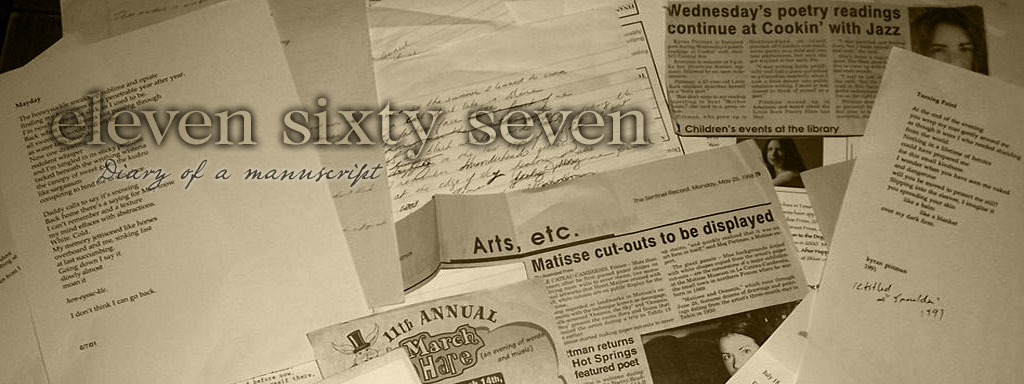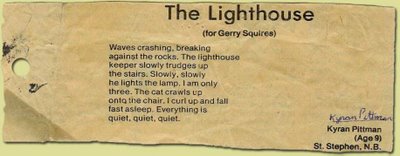1,166Well, my bathroom is clean and the upstairs is vacuumed.
This is how it often goes with me. I sit down to write a poem, and suddenly the bookshelf must be alphabetized. I mean, how the hell is anybody supposed to get any work done with the book spines all helter-skelter? I have to be on guard against this tendency. Yesterday, after I had already spent way too much time trying to get my blog masthead just so, I thought, is this simply an elaborate avoidance manuever? Shouldn't I be writing the poems, instead of writing about writing them? (Don't answer that).
The trouble is, I am very extroverted, meaning I am energized by interacting with others. For an introvert, like my husband, having to engage with others is an expenditure. It costs them energy. I don't know why anyone would want to go and be that way, but they claim they are born like it. I can be dead-ass tired at the end of the day, and if you put me in a group of people, I will be recharged and rearing to go in five minutes. Leave me alone too long with nowhere to go and no one to talk to and I quickly become depressed and lethargic. I wilt.
As far as poetry goes, extoversion is both help and hindrance. I would hazard to say that most poets tend toward introversion. They seem to tolerate long periods of solitude and inactivity. The public, interactive side of the craft appears painful and costly to some, often requiring chemical support to get through it. Me, I love the public part. That is where I shine.
I cut my teeth reading poetry during the heyday of the Poetry Slam movement, and while I was not a slam-style poet myself, I learned a lot watching the best of them, those really dynamic performers who were able to engage people, who didn't stand there hiding behind the paper expecting the audience to do all the work. I feel strongly that a writer who is asking people to sit and listen owes the audience as much professionalism in the reading as they put into the writing. Heart and soul. I love to get behind the mike and pour everything I've got into making a connection with the people in front of it. I am giving away too much of myself in this confession, but I love that audience, whatever the venue, whatever the size. I
will make them love me back, supposing it kills us all.
The downside of that particular orientation is that it's very hard for me to settle down and do the work. I practically need a windowless cell block with nothing in it but a piece of paper and a pen. That is far less true of my prose writing, for some reason, perhaps because it is more conversational and extroverted by nature. Sitting with the poem, staying with it, unravelling it, that's another matter. This is where I need the chemical support. I used to do a lot of smoking. Now I do a lot of pacing.
I hope I will find my salvation in routine and self-discipline. Wednesday is my day to write, and I intend to set aside half my Wednesdays for writing poems. In between, I will be keeping up this and my other blog, writing new essays, sending out magazine submissions and trying to divert my alphabetizing urges toward something more relevant, like a filing system for the zillion scraps of paper depicted in the masthead above. Or learning to compose acrostics.
 1,153
1,153

